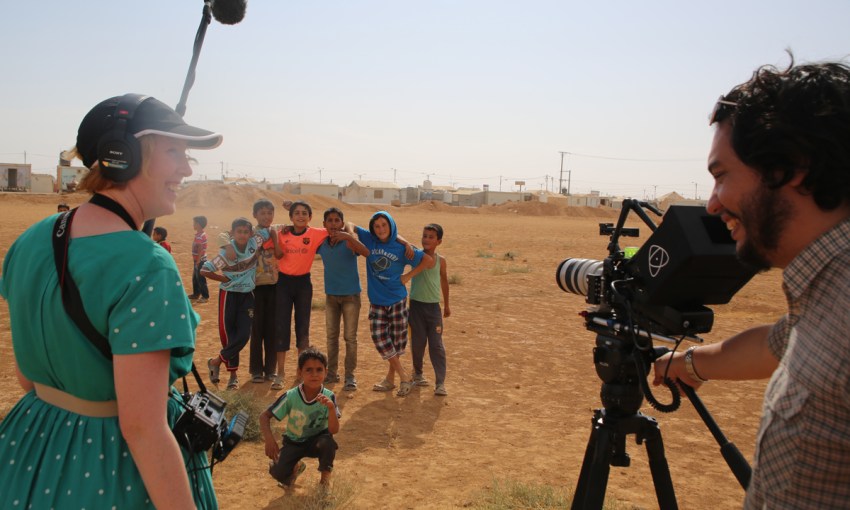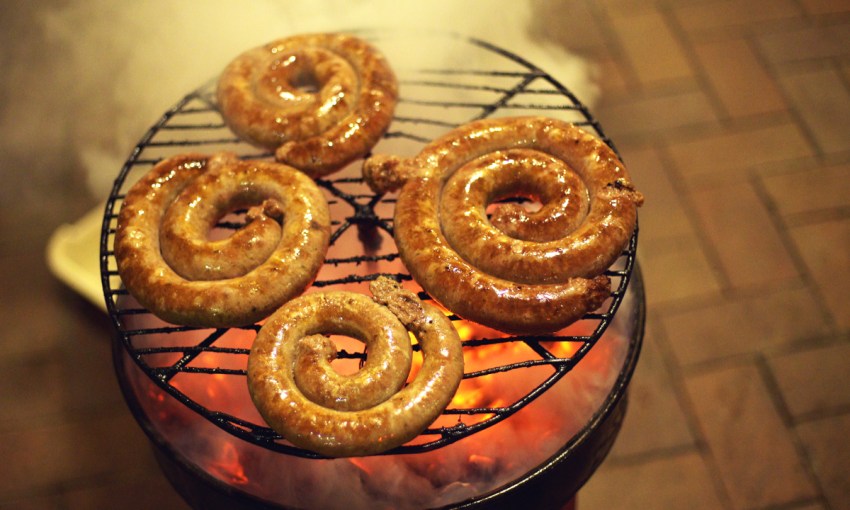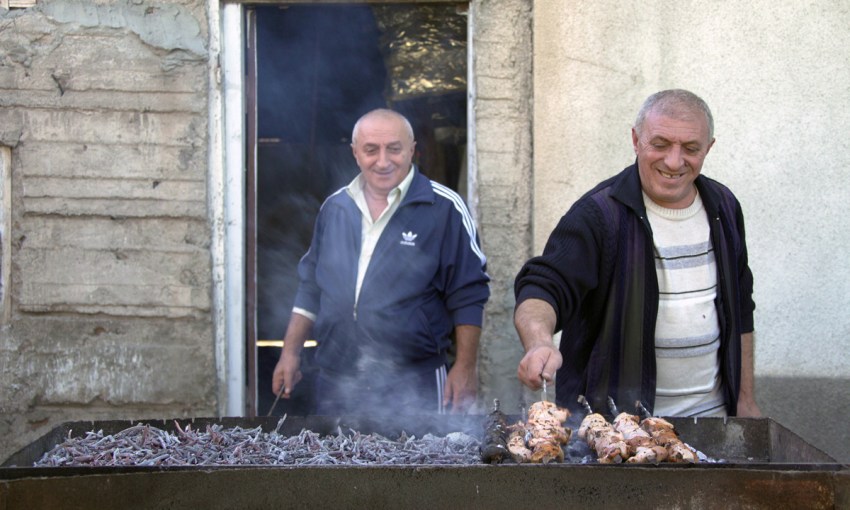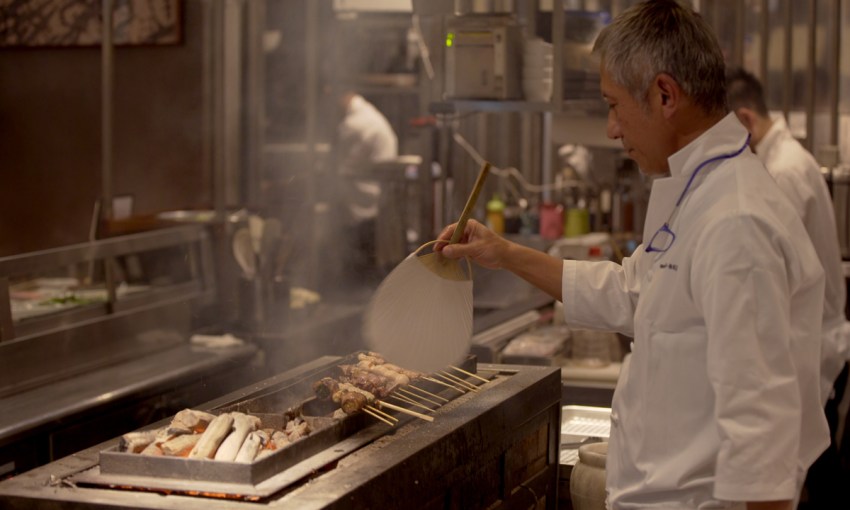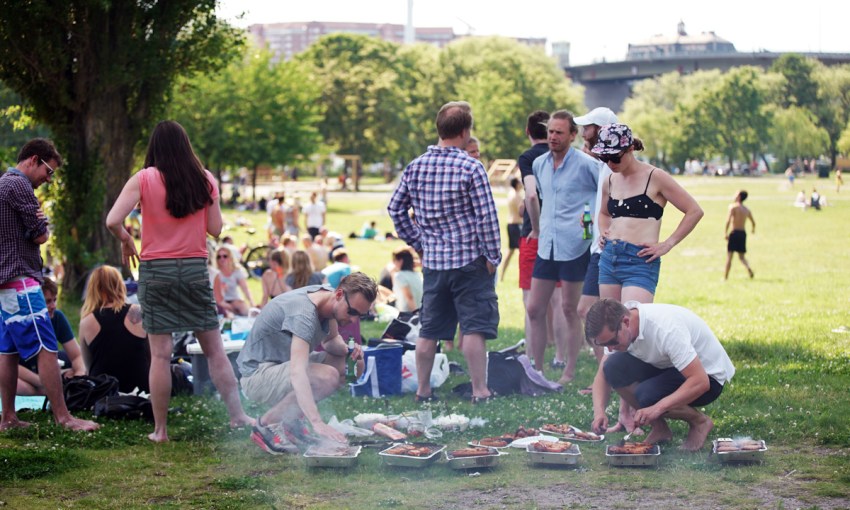After taking them to twelve countries as visitors, Matt Salleh and Rose Tucker’s first feature film 'Barbecue' is also taking their production company to New York.
Heading for the big smoke
Urtext Films started as one of Adelaide’s few sub-cultural stalwarts, located in a run-down old building on Grenfell Street, a few storeys above Harry’s Bar.
But now, Urtext directors Matt Salleh and Rose Tucker are preparing to open an office in New York.
The transformation from making short films, running arthouse movie screenings, and holding punk gigs in the old Grenfell location to helming an international film-making business took about a decade, and was underpinned by Matt and Rosie’s minimalist approach to production.
“We always thought this was how the model of film would end up but no-one believed us,” says Matt.
“When we first started all these people were telling us ‘you just don’t make film like that, you don’t do it with two people, you can’t edit it in your lounge room, it doesn’t work like that’.”
Over the years, as they’ve made high-end TV commercials, short films for clients like the South Australian Tourism Commission and award-winning short documentaries, Matt and Rosie have proven that not only can you make a film like that – you can make it very well.
Their approach has been so successful that in 2014 Screen Australia recognised its potential by awarding them a major grant.
“The fund is called the Signature Documentary Fund and it was all about putting out an auteur-driven artistic piece designed for festivals,” says Rosie.
Matt and Rosie teamed up with long-time friend and collaborator, Daniel Joyce – a producer with Projector Films – to create the grant application after having success with their short documentary Central Texas Barbecue.
“It was at Sydney Film Festival that we met Sam Griffin from Screen Australia. She saw the [short] film, she liked it, she said ‘what do you guys want to do next?’,” says Rosie.
“And we basically said ‘the same, but in twelve countries’.
“We thought ‘there’s no way they’re going to go for this’. We thought it was unlikely because, A – it’s about a seemingly silly subject – barbecue. And, B – because we thought they wouldn’t believe we could do it in the relatively small budget, just because of the amount of travel – I thought they would think it was too ambitious and we couldn’t do it with a crew of two.”
But Screen Australia and the South Australian Film Commission saw the potential, and Matt, Rosie and Dan found themselves planning a twelve country film shoot.
Throughout 2015 and 2016 Matt and Rosie spent nine months travelling – interviewing backyard barbecue cooks in each country about what the method of cooking means to them and their culture. The result is the descriptively-titled Barbecue.
Taking in Sweden, The Philippines, rural Mongolia, South Africa, Armenia, the Zaatari Refugee Camp near the Syrian-Jordanian border, Japan, New Zealand, Australia, Uruguay, Mexico, and Texas, the pair covered 120,000km, which Matt says is “a third of the way to the moon”.
The final outcome of the pair’s work is an emotive, broad-ranging film that takes in everything from issues of racism and animal rights to feminism – but mostly focusses on the universal ability of barbecue to bring people together.
Made to screen in 4K – the highest possible cinema quality, Barbecue is currently under consideration for inclusion at multiple festivals around the world.
But rather than slowing down, Matt and Rosie are instead preparing to expand and to make the most of the opportunity created by the film – adding a New York office base to their existing Adelaide operation.
“We want to be part of a bigger network of film makers,” says Rosie.
“I think the gatekeepers to audiences – the distributors and all of those people – they expect a presence there [in New York],” adds Matt.
Filming in twelve countries over nine months has obvious challenges (like sheer exhaustion), but Matt and Rosie’s tales of the shoot include some exceptional stories.
Combatting bureaucracy at the Zaatari refugee camp, drinking plentiful mezcal in Mexico, and watching their only source of electricity for capturing data in rural Mongolia – a car – disappearing over the horizon when locals repeatedly “borrowed” it are just a few.
“They’re real people. The world is huge and global and there’s millions of films made in all corners of the globe but if you’re there standing in front of them, showing them, selling your passion, that’s what makes the difference.”
Having arrived in New York in October of 2016, the two are initially concentrating on finding audiences and distribution for Barbecue and then will begin making connections with clients for commercial work.
And while they will physically be in New York for a while, they’re adamant they remain firmly South Australian as film makers.
“When we go to New York we will be telling them about our composer in Adelaide and our sound mixer and our production partners and all those people we work closely with,” says Matt.
“It’s up to the film makers who have these projects to take them to the world and bring the work back to South Australia.”



